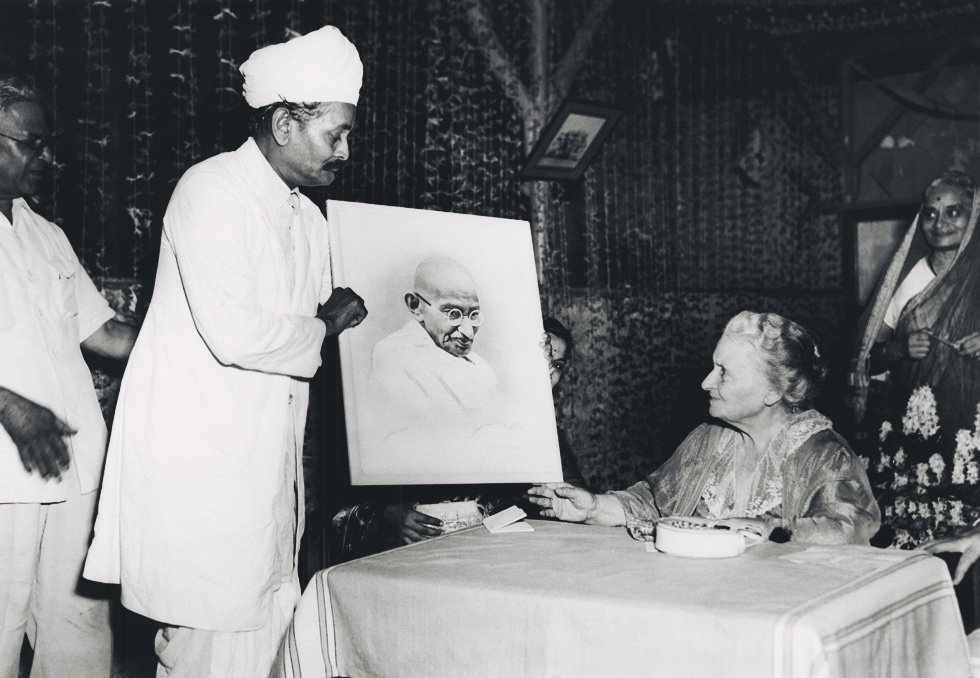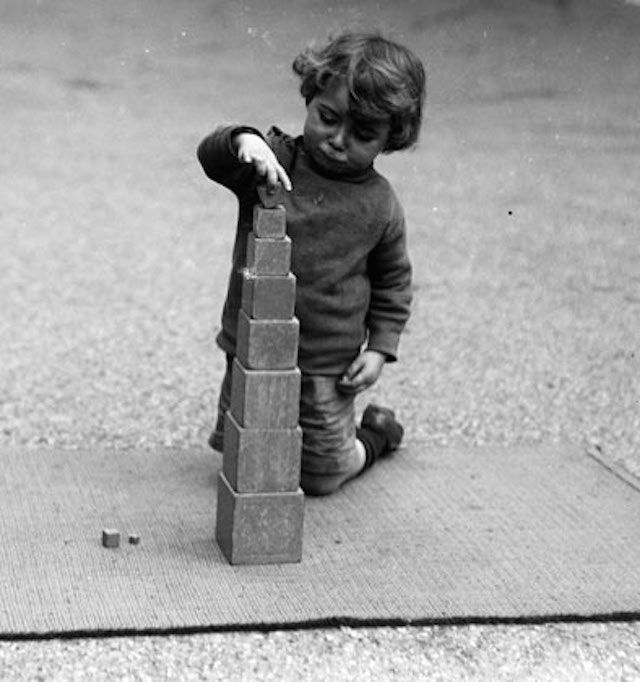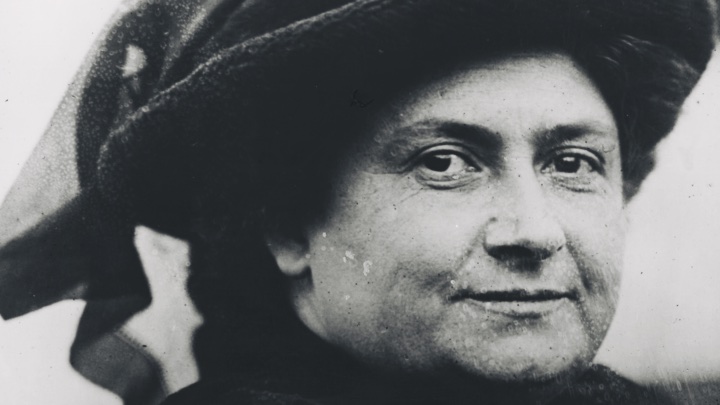A New World And Education
Thoughts & Reflections
In one of our favorite texts, published in 1947, Maria Montessori contemplates the future of education. There are at least three main points that she addresses: the new type of consciousness that will be required to take us in a new direction; the tasks by which such a method of education could be incorporated; and, lest we forget, the characteristics of a new type of humanity if such an education were to be successful.
Maria Montessori:
“…Today the progress of civilisation has made formidable conquests of unlimited extensions, which no one can own and which, therefore, belong to all. It would be absurd for anyone to attempt to own the atmosphere, electricity, the cosmic rays, or the vibrations of the ether. Yet it is these powers that form the world of today. It is upon these powers that our civilisation, which tends to expand with vertiginous progress, is based.
The danger is very real. It is not the energies of the new world that are dangerous. It is the lack of development in man. If there is one task which will make the new world a beneficial reality, that task is the help which has to be given for the development of man.
“ For humanity must acquire a new consciousness and thus realise a psychic adaptation suited to the new world in which it lives. ”
The tragic absurdity of old sentiment in these new conditions is revealed by those groups of men who, urged by anticipations of universal power, still clung to the illusion that they could act as men acted in the past.
No matter what political ideology they held, (…) each wished to become master of the world. The powerful means which were within the grasp of man encouraged them to attempt to realise their illusion. But if each group were to seek to conquer the whole world and its supernatural powers for itself, there would result a general clash, a cyclone of universal destruction. This is the reality which threatens us in this epoch.
The education for this new world must aim, first of all, at bringing help to the consciousness of humanity so that it may adapt itself to the present conditions which have been created through the progress of civilization. A new education is necessary. Everyone agrees on this point. Though the necessity is universally recognised, there is as yet no guide for its realisation. How are we to proceed? What is the practical way to bring about this new education?
At present, we have to battle with the hope of bringing happiness or joy to children, to men and women. For how can one inspire joy when a cataclysm is threatening the whole world? Many advocate the instilling of a spirit of optimism. But why advocate an illusion? Nor can the remedy be in freedom without law; for in a world where a vaster organisation is necessary, man must learn to obey laws which are as strict and as sure as those which govern the universe. Nor can the preaching of brotherhood, the insistent advice to love and understand one another bring a solution to the problem. Experience has shown that wars have grown ever more cruel during the tens of centuries which have elapsed since man first began to preach the great principles of fraternal love. The bitter reality is that events have overcome the sentiment and the will of man.
Education cannot express itself in terms of any of these incomplete ideas of the past. The joy of life, the optimism of hope, freedom and independence, love amongst men, are the spontaneous and natural consequences of an education based on life. If these are to be realised, it is necessary to have the right conditions for normal life. It is necessary that all the latent energies should have the possibility of expansion. Only then can the character of man be formed; man will then be sure of his actions and capable of controlling them.
Character is not an item of knowledge which can be taught through learning or imitation. It is a conquest made during life through personal exercise and through personal experience. Two things are necessary in education. The first is to study man who, as Dr. Carrel expressed it, is still an unknown. The second thing is to help man in his normal development. For this, all the laws and energies put there by nature for the creation of man must be utilised. It is, therefore, necessary to know man from birth itself, to be aware of the processes of development through the different epochs of life, or, better still, to have a scientific knowledge of all the phases of growth from birth till maturity is reached.
This is what education ought to be; an education which starts from birth and which is based upon the knowledge of the psychology of human growth; an education which aims at giving the means and creating the conditions required for the development of man himself. It is evident that, as man is a living being of a determined species, his education must fundamentally be common to all humanity. This education must be based upon freedom, because it is necessary to respect the laws of development. This education must be based upon independence, because if man is dependent, he does not exist as a functioning individual. The purpose of this education is the development of character so as to make man master of himself and sure of his actions
…Moral education, which is so necessary today, must insist upon the appreciation of civilisation rather than upon the appreciation of the character of one’s country or of one’s race, as has been the case in the past. Civilisation was created by man the intellectual, man the worker, and man the genius, who carried out a mission of progress, urged by extraordinary energies. It is man that must be appreciated irrespective of race or country – the man who has influenced progress, as well as the man who, by his work, kept up this loftier environment in which all humanity lived.
The new education must foster a new understanding of the real values of humanity and gratitude must be felt for those workers upon whom human life depends. If man is not appreciated, if there is no respect and veneration for human life, how can we expect or hope that men will become friends and work in peaceful collaboration?
There is something more. There is also the fact that if one has grown up with a veneration for humanity, one will not consent to become an unconscious, destructive force to destroy humanity. Men will not lend themselves to those erroneous ways which foolishly destroy the creators and maintainers of everything that provides for their existence. They will be unwilling to use the supernatural and universal powers which they possess for a cosmic cataclysm to destroy the fruits of civilisation. Having developed a conscience and sentiment towards human life, they will be incapable of cruelty; for cruelty belongs to a dead soul. …men conscious of the value of humanity will refuse to obey an insane and absurd command as the one to destroy those who produce and maintain the civilisation in which we all live.
Through all this shine forth the necessity and importance of educating the child. The child must not be considered as he is today, in his apparent weakness in relation to us. He must be considered in his power of potential man. Every human being is the result of the growth of the child; as every tree, even if gigantic, originated from the seed which potentially contained it…”
* The original text can be found on the Association Montessori Internationale website, and there are a number of other excellent contributions, which we highly recommend.
Written by:
Bobby George




